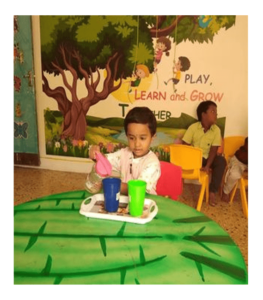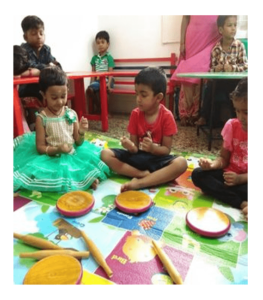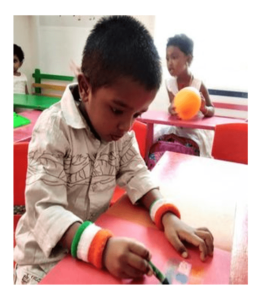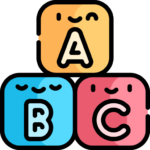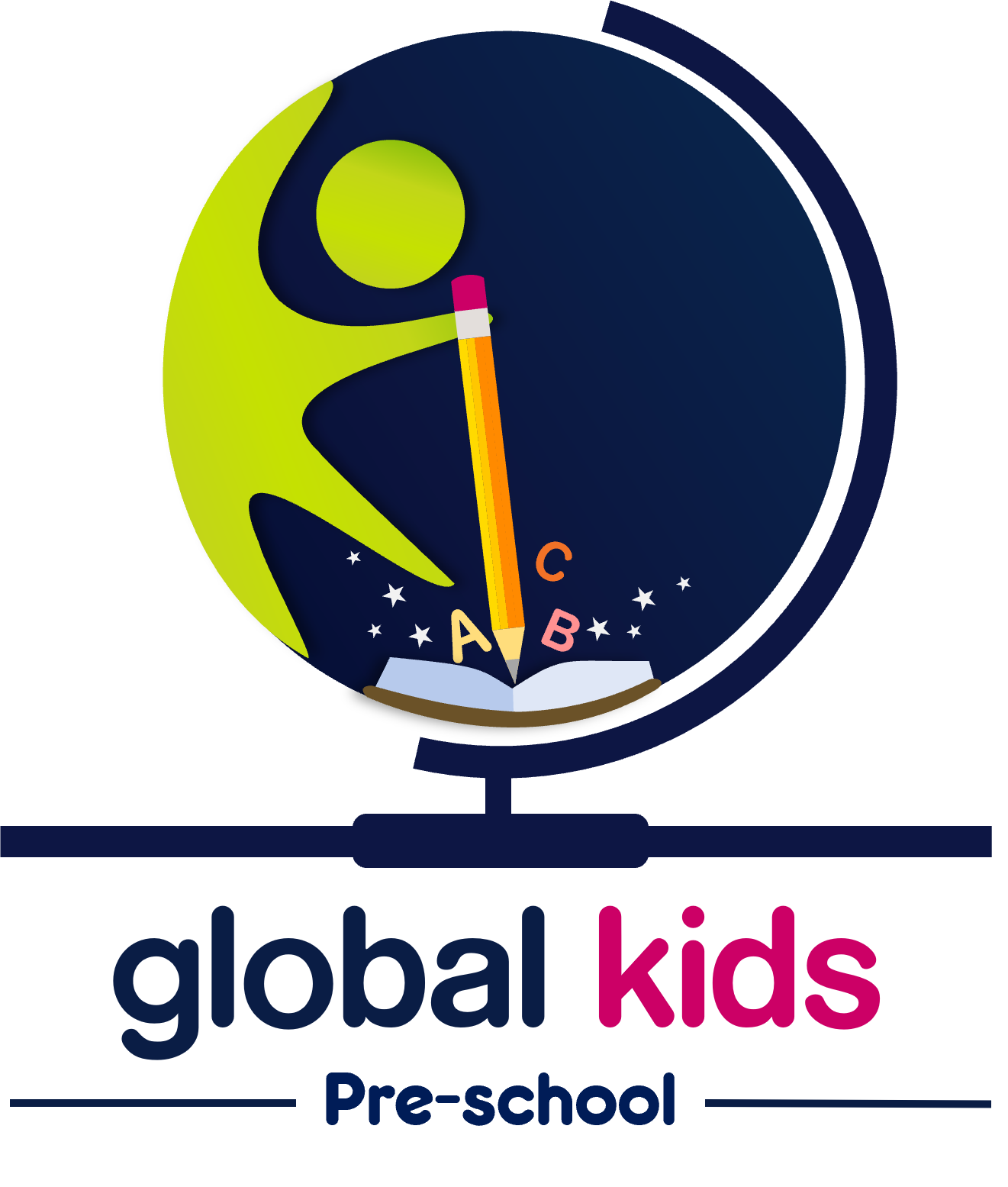



Understanding how children learn and grow at this age is important in order to comprehend why the Montessori method is considered the best teaching approach. The period between the ages of 2 and 6 is crucial for a child’s development and learning. During this time, their motor skills and cognitive abilities develop rapidly. They acquire knowledge from their surroundings and the people around them. The image above illustrates the stages of development and growth, categorized into four planes. In the first plane, from birth to age 6, children have what is known as an “absorbent mindset.” They eagerly absorb information from their environment and others, learning effortlessly and naturally.
Montessori divided this plane into two phases. The first phase, occurring from birth to 3 years old, is called the “unconscious stage.” During this period, children absorb information without conscious effort. They learn by imitating others and develop basic skills in the process.
The second phase, taking place between 3 and 6 years old, is referred to as the “conscious stage.” Children still possess absorbent minds during this period, but they become more aware and intentional in the experiences they seek. They are motivated to enhance their skills and desire the autonomy to make their own choices and accomplish tasks independently. To know more about the four planes of child development click here.
Montessori education is beneficial because it aligns with the natural learning and developmental tendencies of children, allowing them to learn at their own pace and develop independence, critical thinking skills, and a love for learning.
Montessori education is a well-founded educational approach created by Maria Montessori, an Italian physician and educator. It places great importance on fostering independence, allowing children to have freedom within certain boundaries, and respecting their natural psychological, physical, and social growth. The fundamental belief of Montessori education is that every child is a distinct individual with great potential and a desire to learn and engage. As a result, teachers in this method guide each child through the learning journey by utilizing materials that cater to their unique needs and learning pace.
A Montessori education is based on the six principles:
Montessori believed that a child must be free to explore and follow his own natural impulses, thus developing his potential and increasing his knowledge of the world around him. Within the prepared environment, the child must experience freedom of movement, freedom of exploration, freedom to interact socially, and freedom from interference from others. This freedom ultimately leads to a greater freedom: freedom of choice.
Recent psychological research has provided evidence supporting the idea that having an orderly environment is highly beneficial for learning and development. In Montessori classrooms, both the physical arrangement and the progression of material usage are meticulously organized.
Montessori settings are encouraged to have an aesthetic appeal. The environment should evoke a sense of simple harmony. It should be free of clutter and properly maintained, exuding an atmosphere of peace and serenity. The environment should warmly welcome learners and inspire them to engage in their work. This inviting ambiance becomes evident through the attitudes of those present, both children and adults alike
In Montessori classrooms, children acquire knowledge and skills through various methods such as observing and imitating role models, engaging in peer tutoring, and collaborating with others. In mixed age classes, younger children learn by observing and interacting with older children, asking questions, and observing their work. At the same time, older children benefit from teaching and guiding younger peers, reinforcing their own knowledge and skills while also developing important social abilities.
Our brains have developed in an environment that encourages physical activity and engagement, not in one where we are stationary at desks. The relationship between movement and cognition is closely interconnected. Therefore, education should incorporate movement to optimize the learning process. In Montessori programs, children primarily learn through active participation rather than solely relying on what teachers and textbooks convey to them. By engaging in hands-on activities, their learning becomes situated within the context of actions and objects, rather than being limited to listening and writing. For instance, children venture beyond the confines of the classroom and explore the world to conduct research based on their own interests.
